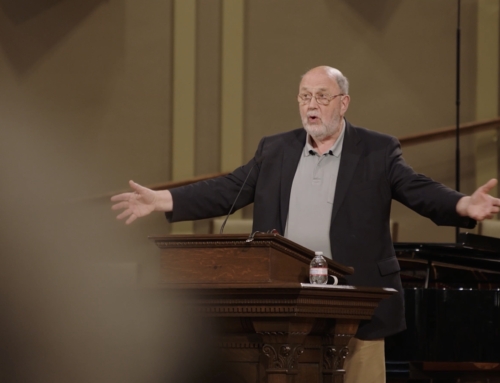The phrase ‘good works’ sometimes is misunderstood. Yet, the church ought to be known, in part, by our virtuous deeds—whether it is in caring for the poor and sick, or striving for justice for the oppressed and the outcast. One of the reasons why I was so encouraged by Prof. N.T. Wright’s teaching in his course on ‘Faith Working through Love’, is precisely because I needed a reminder of the goodness of good works:
I want you to insist on these things, so that those who have put their faith in God may take care to be energetic in good works (Titus 3:8).
I want you to insist on these things, so that those who have put their faith in God may take care to be energetic in good works (Titus 3:8). Click To TweetEarlier in the letter (vv 4-7), Paul clearly distinguishes that God does not rescue His people because of their good works. Rather, he saves us for good works. This includes offering praise to our Creator and reflecting his goodness within his new creation. One of the practical ways this is achieved is through our worshipful work empowered by the Holy Spirit. A tangible space in which we build for God’s Kingdom is within the walls of the workplace—places both inside and outside of the home—where we perform our normal tasks and jobs.
This past week I had the opportunity to observe three aspects of faith working through love in the workplace:
- Work as faithful follow-through: A friend who is a prison chaplain related the qualities of chaplains that inmates seem to value most where he works. I was not surprised to hear about the importance of non-judgmental listening. What did surprise me was learning just how much inmates valued ‘follow-through’. My friend explained that if a chaplain commits to checking on a family member, praying, or lighting a candle, or even helping an inmate to check on mail delivery, that following up is crucial in developing trust. In short, faith working through love in the context of prison ministry and vocation looks like listening and doing what you say you will do.
- Work as faithful contribution: I have worked part-time in customer service at a call center for the past 24 years. Most of the time it seems like a very unimportant job, especially if I compare myself to others who seem to have ‘more important’ careers. However, what I have learned after more than two decades of answering questions, resolving problems, or showing up to work on time, is that these seemingly mundane things can have monumental impact—either positively or negatively (just think about the times when you have spent an hour on the phone trying to get an issue fixed compared to when it was resolved within a few minutes). God is teaching me that all ‘good works’ in Jesus’ name is noble work. It all counts. It all matters. It all contributes to building for his kingdom.
- Work as faithful dependence on God: I recently read a memoir by Captain Tammie Jo Shults called Nerves of Steel: How I Followed My Dreams, Earned My Wings, and Faced My Greatest Challenge. Shults recounted her formative experience as a naval aviator, and her current career as a Southwest Airlines pilot. In April 2018, she successfully made an emergency landing after an engine explosion tore away parts of the plane, severing fuel and hydraulic lines. She detailed the enormous difficulties involved in landing the plane during this catastrophic event. What struck me was her account of listening back to the flight recorder, which captured her words during a critical decision-making moment: ‘Heavenly Father’. It was this whispered prayer of faithful dependence that is emblematic of faith working through love at work.
Shults’ memoir is a reminder that many people have jobs where the lives of others is literally at stake. Other workers make beds or lunches, keep airports tidy, or are available and present to listen. No matter the type or context of our work, Prof. Wright encourages us that the Gospel is meant to re-humanize us, to make us better people—people who will demonstrate the saving, transformative love of God in who we are and what we do.
One aspect of the power of the Gospel for faithful living enables winsome and wise behaviors. As such, I am asking myself if I am generally the type of person that others want to be around at work? Am I becoming a living example that demonstrates that the work of the Gospel has taken root in my heart and is bearing fruit?
Prof. Wright encourages us as Messiah’s people to consider our ‘public lives’ and to take our jobs and responsibilities in civic society seriously. We can be encouraged to not tire of doing what is right because ‘In the Lord your labor is not in vain’ (1 Corinthians 15:58). Nothing is wasted. Nothing is too small. Nothing is trivial when it is done by Him, for Him, and through Him as faith working through love.
Enroll today in Professor Wright’s online course Faith Working through Love for free.
Jennifer Loop
Latest posts by Jennifer Loop (see all)
- Why You Need Lent: Two Perspectives - February 22, 2023
- How (Not) To Understand a Parable - October 20, 2022
- What People are Saying About ‘Ethnicity, Justice and the People of God’ - February 10, 2022







